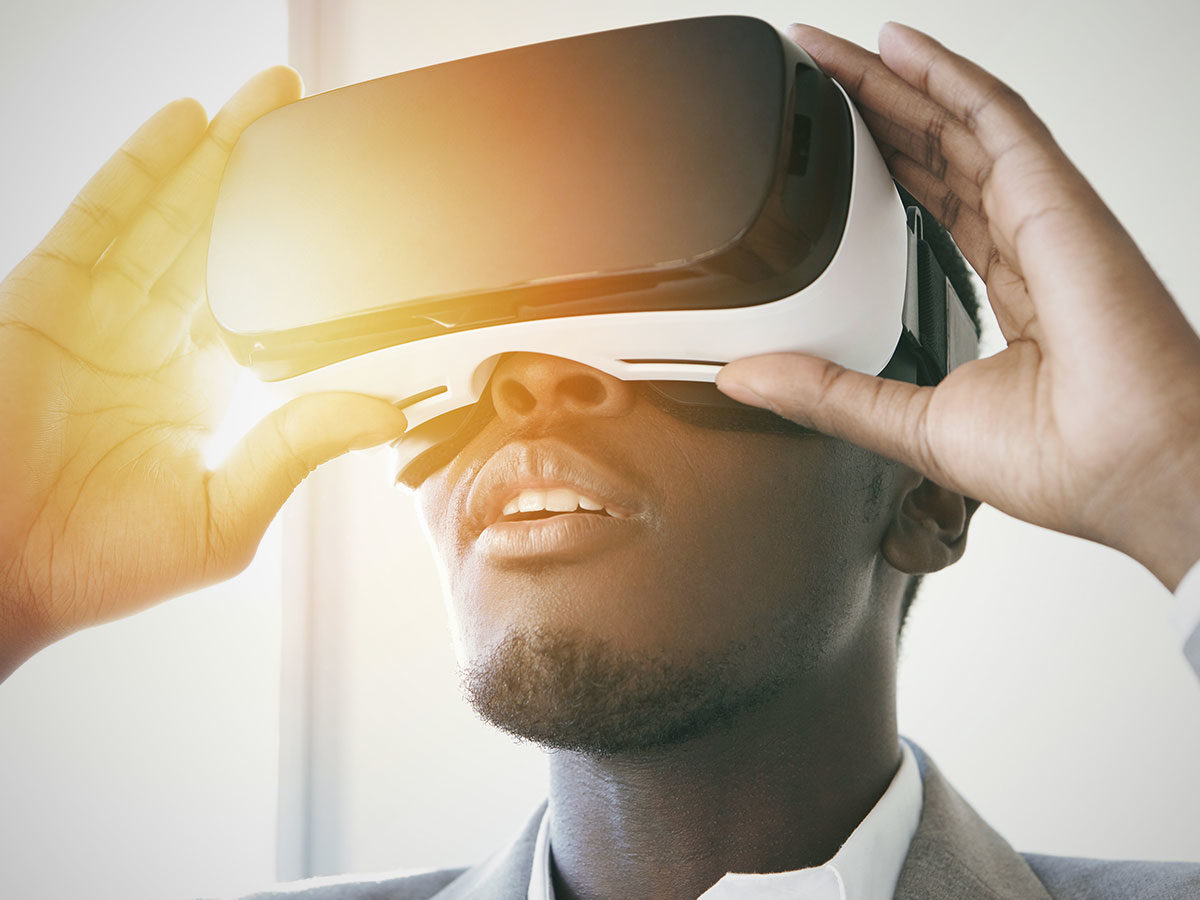

It’s a rare moment in life when you encounter something that helps you see the world in a new way. Your heart races, your mind expands, and everything seems possible. I experienced just such a moment last year when I visited Jeremy Bailenson’s Virtual Human Interaction Lab at Stanford University.
It wasn’t my first experience in Virtual Reality (VR), which itself had been exciting and provocative. My early exposure inspired me to form a team at LRW focused on using VR to better understand the role of the non-conscious and emotions in consumer decision-making. I thought of it as VR meets MR (market research).
At Professor Bailenson’s lab, I flew in a virtual world like Superman and saved a baby. Afterward, I felt powerful and proud of my good deed. Professor Bailenson explained that test subjects who experienced the virtual Superman flight were more likely to engage in altruistic behavior after their experience. I pulled the goggles over my eyes again. This time, I found myself in a forest where I chopped down a mighty redwood tree with an axe. It didn’t surprise me when the Professor reported that test subjects used fewer paper towels to clean up spills after leaving the woods. Professor Bailenson opened my eyes to a new reality, a Virtual Reality that affects actual reality.
I instantly had a revelation. We could use virtual reality to change human behavior, making the world a better place. It turns out that Jeremy had the same idea. So we decided, pretty much right then and there to together develop a new venture with a ridiculously grand idea of “changing human behavior to make the world a better place.” Probably crazy … but you gotta dream big!
Together, we launched AppliedVR™, a company designed to find commercial applications for VR to improve life. Our applications to date include multiple health applications in the realms of pain management, weight loss, drug and alcohol recovery, medication and physical therapy adherence and more. We’re currently working with the top management of a multi-billion dollar insurance company to develop a VR-based approach to improving worker safety awareness and sensitivity with the goal of reducing the rate of workplace accidents.
When we first started, we encountered some skepticism. But now we tell people we’re only interested in talking to cutting edge, innovation-oriented thinkers who want to partner with us in developing truly new things to the commercial marketplace. Nearly all the meetings we’ve been having are with CEOs, CMOs, and Chief Innovation Officers. We’re finding a lot of top management really want innovative ideas to improve their businesses.
About a month ago, Mark Zuckerberg visited Dr. Bailenson’s lab. His intuitive bells must have rung like mine did, because today Facebook publically announced its acquisition of Oculus VR, the virtual reality headset maker, for a whopping $2 billion.
“We are making a long-term bet that immersive virtual reality will be a part of people’s lives,” Zuckerberg said on the investors’ conference call.
I couldn’t agree more. I’d say he probably got a good deal.
You must be logged in to post a comment.
I believe wholeheartedly that we’re looking at the next big technology distruption right in front of our very eyes. The implications of VR technology are both thrilling and a bit frightening – the power to take people to worlds that don’t even exist yet, challenge our ways of thinking, break stereotypes that we believe in, and (hopefully) change people for the better. It will be a true testament to who we are as a society and what we hold at our highest value that I think will be reflected in the way we use VR. Years ago, I would have only imagined the application of gaming or filmmaking….. now I think we’re truly embarking on a brave new world. I’d like to pose a question – what would you do if you could create anything in VR? What about behavior – what would you want to change?
Any time culture adopts a new a medium for conveying experiences, the world changes profoundly. The printing press- and the books that would take us places. The camera- and the moments that would stay with us. The World Wide Web- and the information that would link us.
Mediums like these give us new ways to take one another places, to motivate, and to connect. Enlarging and enriching our worlds, causing us to think differently about where we are and where we’re going. So much a part of our everyday lives that we rarely pause to reflect on it.
Virtual Reality is another such medium. It enables us to experience places that are, that were, that will be, and could never be. The possibilities are endless. And so are the opportunities. For just like the printing press, camera and World Wide Web are nothing without their respective books, pictures, and information– their content– the mark of Virtual Reality on culture will be determined by the content we create. The applications we build.
Today is an exciting day to be a part of AppliedVR™!
The other day I got on my typical train home, sat down and looked around at all those around me – 10 out of 10 were fiddling on their smartphones. I recalled how a decade ago, everyone would be reading newspapers instead. Will the future be VR? I don’t know, but I’m curious to see how my fellow train travelers will be spending their ride home a decade from now.
I think the opportunity to make positive changes in this world are endless – from being kinder to the ecosystem; to dealing better with a serious health issue and even just be kinder to mankind. . .VR has an opportunity to change so many things in the world we live in. I’m excited!
David and Tom:
I really enjoyed this article as it is insightful, genuine and expresses my belief that MR can improve the world. In fact, when I think of various studies which I have conducted over the years, I know of pharmaceutical products where the survey results managed to get the FDA to approve the product, I know of a study which helped to get the Congress to continue funding to the National Endowment for the Arts, helped women with Stage 3 breast cancer, and a study which helped get in-fill drilling passed in Kansas and Oklahoma. Virtual Reality is the next frontier. I was there in the 1960s when we did door-to-door interviews only and we tabulated data on abacuses, comptometers, and slide-rulers. We eventually moved to phone, online and mobile interviewing and from mainframes to laptops to Ipads for tabbing. VR will be another tool in our tool box of weapons to learn new and better insights into human behavior. Also, thanks for the stock tip with Facebook acquiring Oculus.